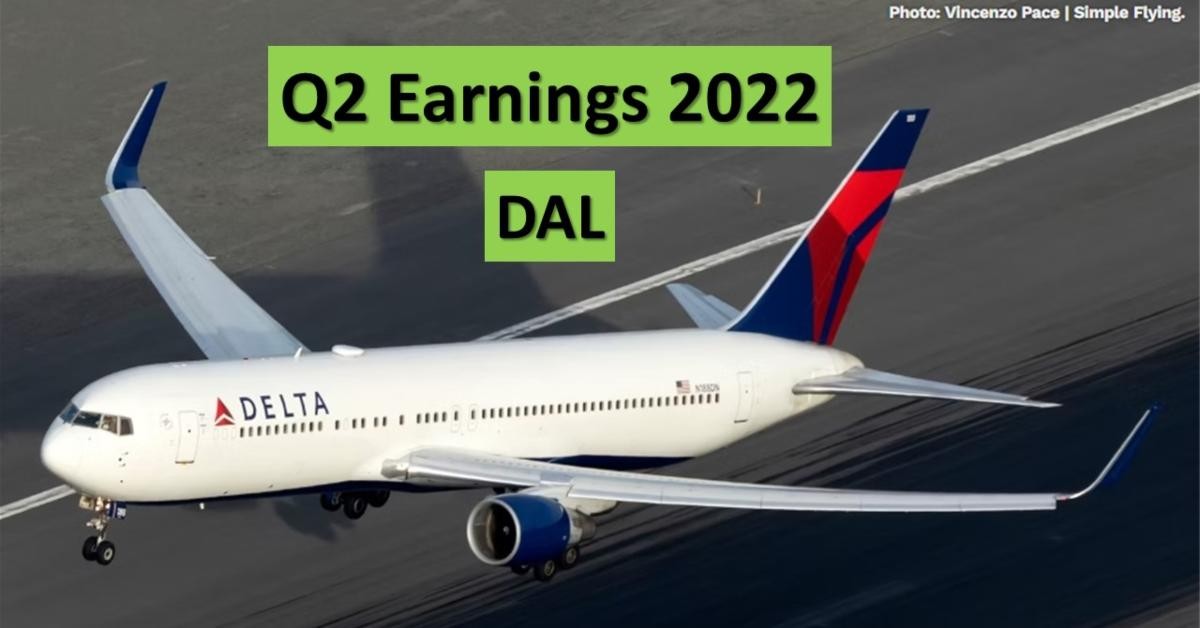Load factor and its importance for Delta Airlines
Delta Air Lines (DAL) is due to release its second-quarter 2022 results on Wednesday, July 13th, before the market open.
The Zacks investment research estimated $13.14 billion in revenue, showing 84.4% growth year over year. Earnings per share are also estimated at $1.70, indicating more than 100% yearly growth.
Despite the bothering fuel prices, recently seen improvement in air-travel demand in the United States and international flights, particularly on the leisure front, have boosted the overall aviation industry, including Delta's flay to see improvement in their income as well.
Delta Air Lines' Q1 results were published on April 13th, 2022. Minus $1.23 was reported as its earnings per share for the quarter, beating the consensus estimate of -1.28 by $0.05. The company revenue also was much better than consensus expectations at $9.35 billion during the first quarter and 125.3% on a year-over-year basis growth. The overall EPS gain of the company over the last year was 0.79 US Dollars.
In the first quarter, we highlighted two factors as its main price share drivers. Load Factor and Fuel price. About the Load factor (the percentage of a carrier's available seats that are filled with paying passengers), although we saw significant progress to 75%, it was lower than expected 80%. As I marked in that report, numbers above 80% could read as a positive signal, and lower than that could pressure the share price, which happened, and after earnings, despite the low growth seen in the first days after the report, the share price lost $10 to test the lowest price since September 2020 at $28. DAL Load Factor was around 85 before the pandemic hit. For this quarterly report, an 80% result can be a positive number for its load factor. Therefore, after the report, please check these factors as well, besides EPS and Revenue numbers.
Company officials said that they expect that company revenue for Q2 FY 2022 to recover to around 93% to 97% of its level in FY 2019. However, still, we can doubt that, as oil price continued to increase in the second quarter even more sharply.
From the technical point of view, $28 is strong support, and if the share price decline under this level, we can see the nest stop around $23. This technical decline and downtrend can be supported by the weaker report and possible restrictions for the latest COVID-19 version. On the flip side, if we see positive results and the environment, $37 will be the next target. Above $37, $42.80, and $45.30 will be the next resistance.


















